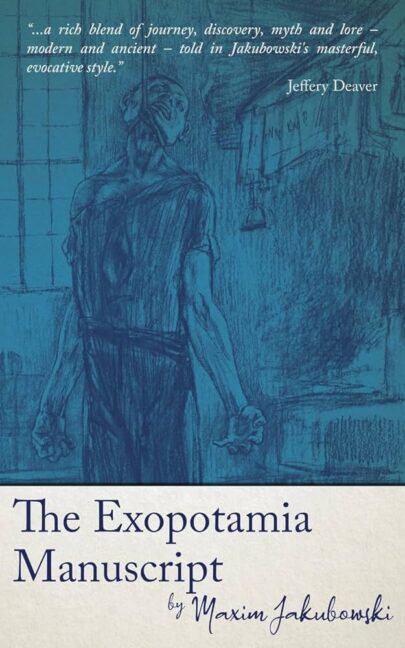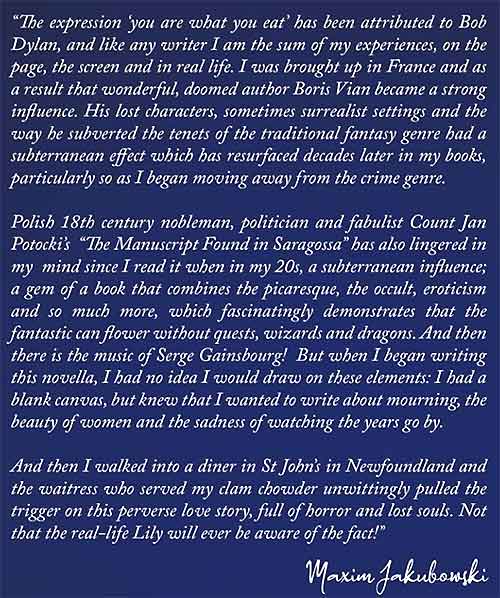By MAXIM JAKUBOWSKI (Black Shuck Books; 2024)
A novella that is, frankly, a mess. It is, however, a mighty fascinating mess packed with literary allusions, autobiographical shading and a highly picturesque scope.
The title, THE EXOPOTAMIA MANUSCRIPT, is a play on THE SARAGOSSA MANUSCRIPT, one of several classic books and films referenced in these pages. Others include Thomas Mann’s DEATH IN VENICE, the Louis Malle film THE FIRE WITHIN/Le feu follet (1963), Boris Vian’s RED GRASS and Hanns Heinz Ewers’ ALRAUNE, all of which are thematically incorporated into the narrative, as are the magical properties of the mandrake root, properties made literal in the final pages.
The protagonist Joseph Modiano was evidently patterned on his creator Maxim Jakubowski. Like the eightyish Jakubowski, Joe is an aging English writer and compulsive traveler. During one of those travels Joe meets Lily, a twentyish waitress in a Newfoundland restaurant who becomes the most unlikely half of a May-December romance. She agrees to accompany Joe on his travels, but a visit to a mysterious bookshop in Venice proves fateful—as Lily, for reasons that aren’t immediately apparent, immediately disappears.
The succeeding events take Joe to Paris and a secluded island community patterned after New Orleans, amid a “surreal ballet of stuttering relationships.” Stories within stories grow increasingly prevalent (the SARAGOSSA MANUSCRIPT influence), as does the sexual content (reminding us that Jakubowski has penned a great deal of literary erotica), leading to a highly fanciful conclusion in which sex, death and a surprise viewpoint shift render an already puzzling tale even more so.
The fanciful elements are allowed to increasingly dominate the latter pages in passages that may have been intended as a sustained hallucination. This clashes mightily with the book’s more naturalistic earlier portions, which are concerned primarily with character detail and descriptions of the many exotic locales Joe visits. Jakubowski, as anyone who’s read any of his earlier fiction well knows, is a skilled and extravagant wordsmith, and THE EXOPOTAMIA MANUSCRIPT offers further proof of his talents.


